Moons of Jupiter
Jupiter is fifth planet from the sun and largest in our solar system so it has a lot of moons. 69 exactly.
Biggest four moon are Galilean moons, which were discovered in 1610 by Galileo Galilei. They were first objects discovered to orbit a body that's not earth. Those four moons are : Io, Europa, Ganymede and Callisto.
- Io
Io is the fourth largest moon of Jupiter. It has the highest density of all moons but least amount of water. Io is also most geologically active object , over 400 volcanoes. This volcanoes are caused by tidal heating because Io is being pulled between Jupiter and other moons. Some vulcanoes produce sulfur plumes that climb 500km above the surface. Io is 5% bigger than our moon and have extremely thin atmosphere consisting of sulfur dioxide.
- Europa
Europa is smallest of all four Galilean moons. Europa is little smaller than our moon and it's made from silicate rock and has water ice crust. Europa's atmosphere is composed of oxygen. Europa is first candidate for extraterrestrial life in our solar system because of large oceans beneath ice crust. Europa is smoothest object in our solar system.
- Ganymede
Ganymede is larges moon of Jupiter and in the Solar system. It has diameter of 5,268km. Ganymede is composed of silicate rock and water ice. It has ocean that contains more water than all earth's oceans combined. It's atmosphere is made form oxygen.
- Callisto
Callisto is second largest moon of Jupiter. It's rotation is tidally lock to orbit around Jupiter. Diameter of Callisto is 4821km which makes it third largest moon in Solar System. Callisto is composed of equal amounts of rock and ice. Callisto's surface is covered with impact craters and it shows no signs of subsurface processes (volcanoes or plate tectonics). Callisto has very thin atmosphere composed of carbon dioxide.
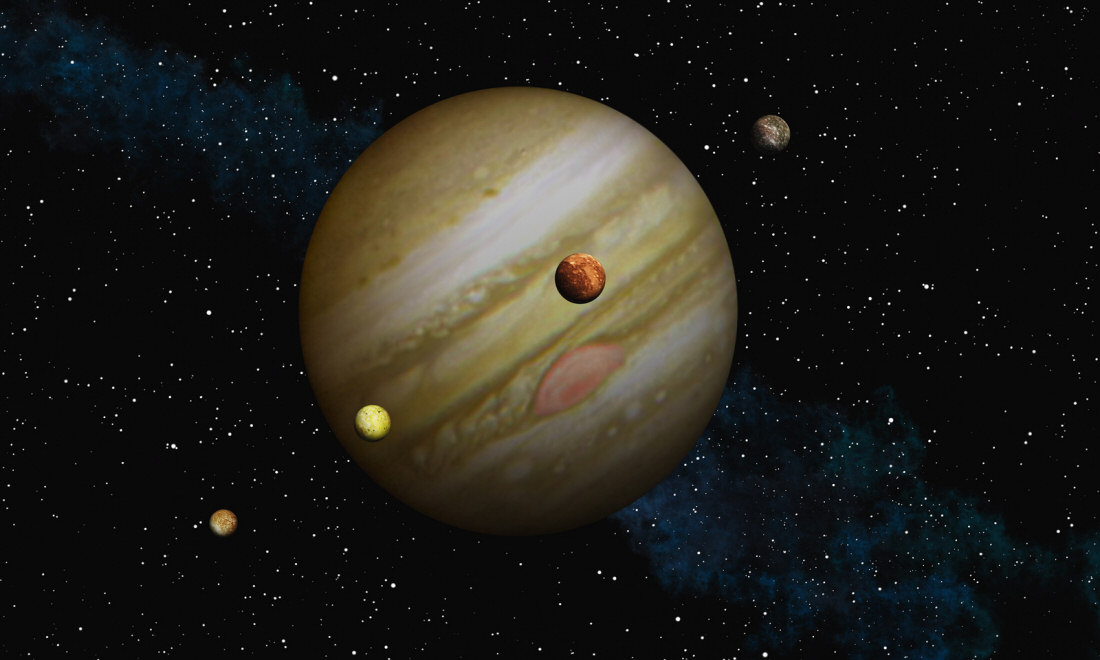
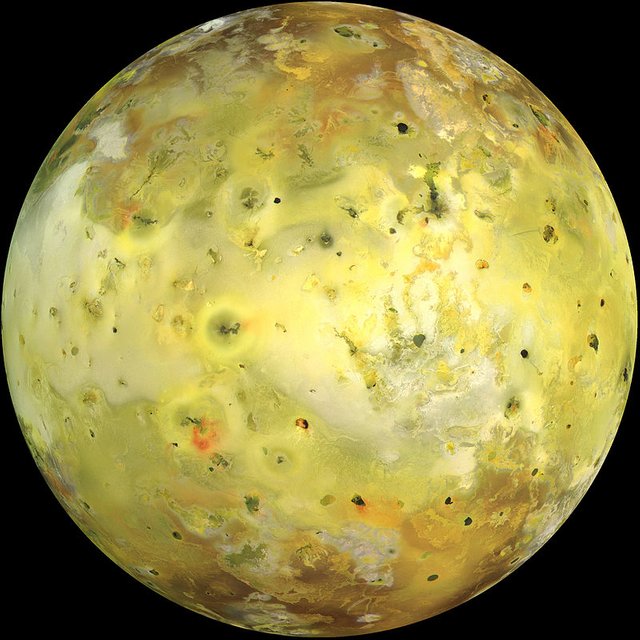
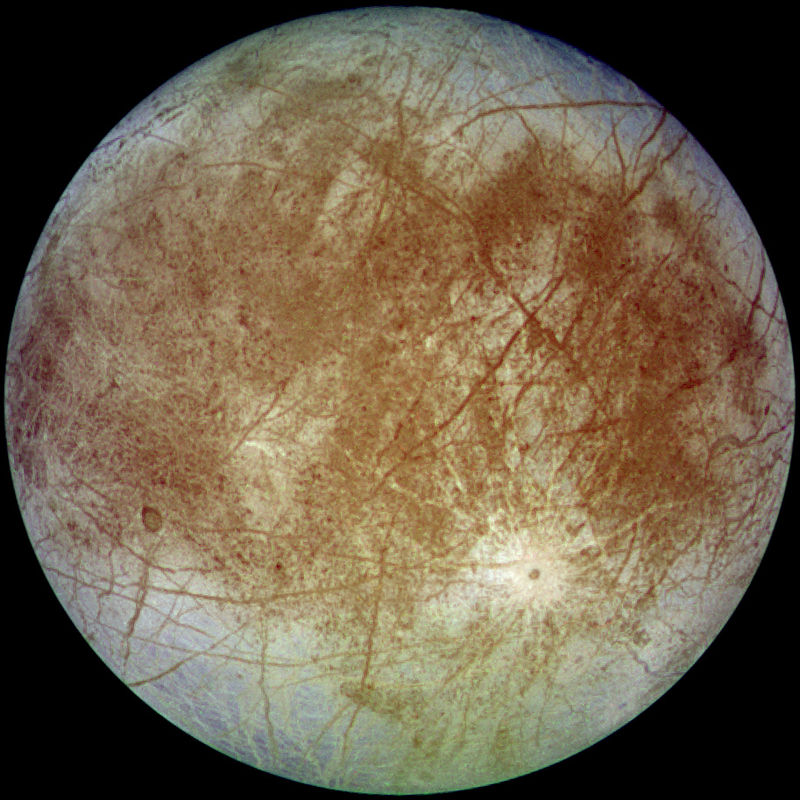
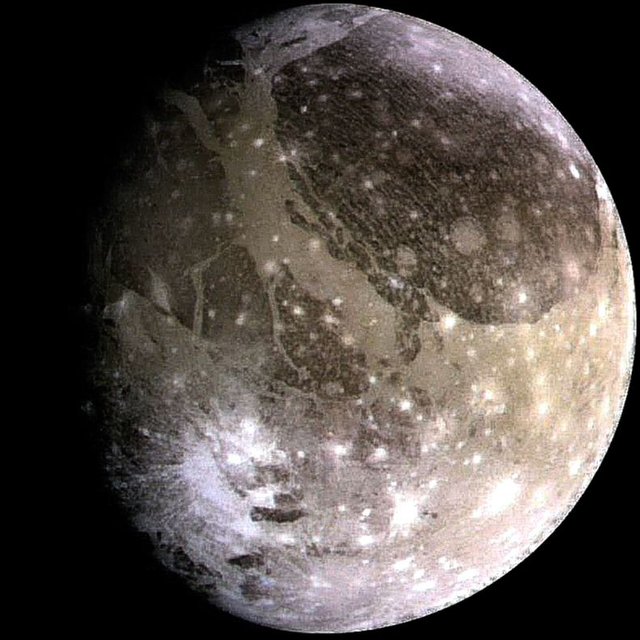
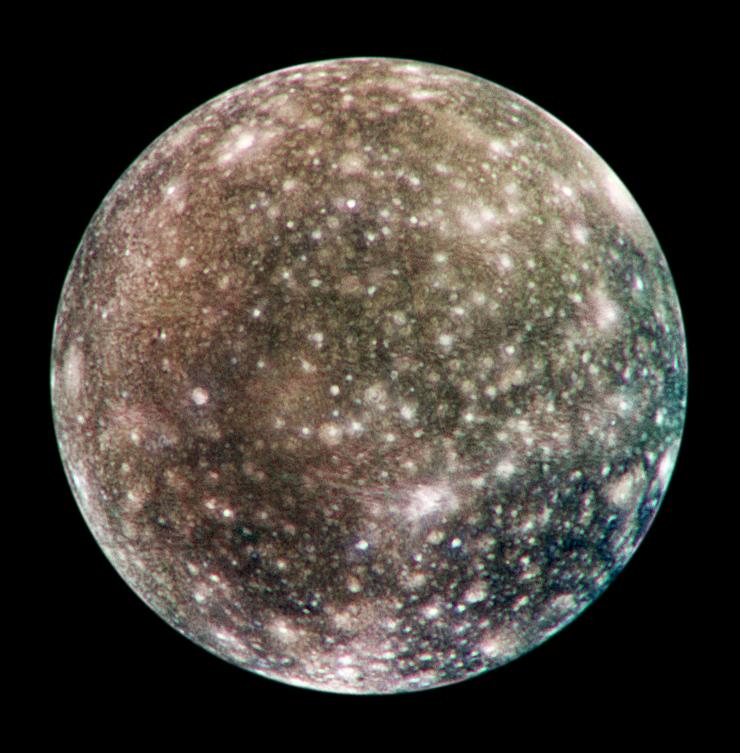
I love learning about the solar system, and have done ever since I was a kid. Thanks for sharing!
Me too, i've veen reading about this stuff for a long time now.
Very informative. thank you.My son loves solar space so will save this for when he is a bit older.
Thank you good sir for this ~interplanetary~ education! Very informative - and cool !!
This post received a 2.2% upvote from @randowhale thanks to @leonarda! For more information, click here!
Nice, I like the astronomy. And Jupiter is like my favorite planet of the solar System, I will add that probably in Jupiter rain Diamonts of the size of 1 cm. Sorry for my bad English.